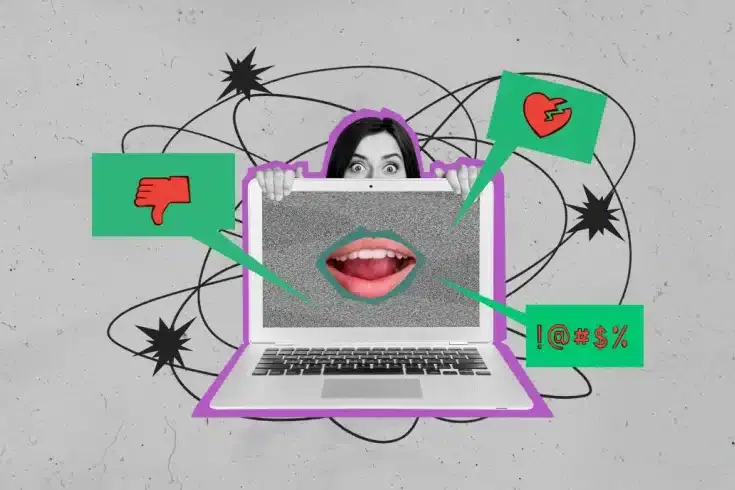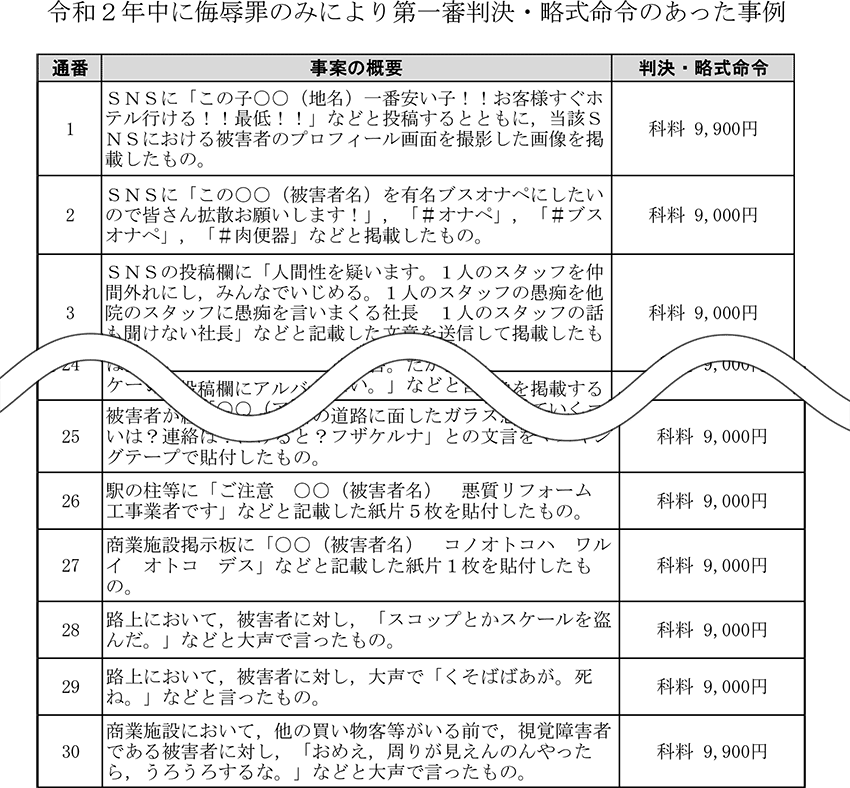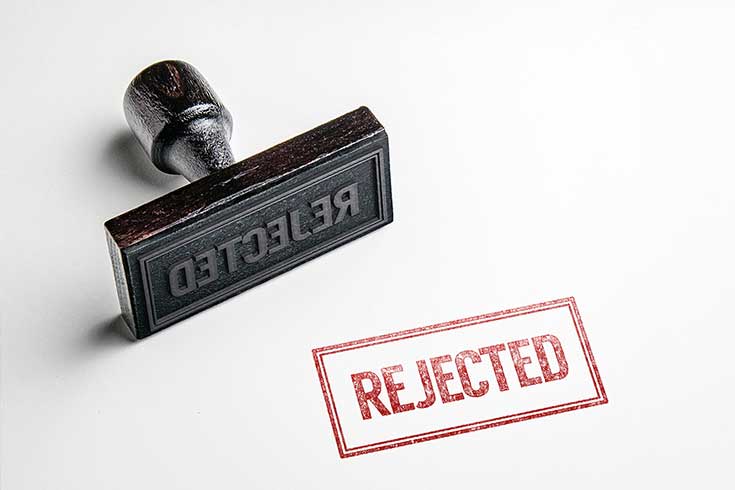Insult Crimes in Japan: Explaining Specific Examples and the Differences from Defamation

In everyday life, a casual remark or a post made on social media without much thought can potentially escalate into unexpected trouble due to the crime of insult. The ‘crime of insult’ and ‘defamation’ are often confused. Where exactly does the difference lie?
This article will provide a detailed explanation of what constitutes the crime of insult, using specific examples to help understand the differences between insult and defamation. It will also introduce how to respond if you have been insulted.
The Elements for Establishing the Crime of Insult

The crime of insult is established when a person is publicly insulted without stating facts (Japanese Penal Code Article 231). The elements for establishing the crime of insult are as follows: (â»The term “stating” refers to presenting in a summarized form)
- Not stating facts
- Done publicly
- Actions or language that insult a person
Here, we will explain each of these elements.
Not Stating Facts
One of the elements for the establishment of the crime of insult is that the content of the insult does not indicate any concrete facts or reasons. For example, abstract expressions such as “incompetent,” “idiot,” or “fool” are based on subjective values and cannot be considered factual. These expressions do not indicate facts and therefore meet one of the criteria for the crime of insult.
On the other hand, statements like “Mr. A is incompetent because of poor sales performance” or “Ms. B is having an affair,” which include specific content (regardless of the truth of the facts), may not constitute the crime of insult but could potentially fall under the crime of defamation, which will be explained later.
Done Publicly
The second element of the crime of insult is that it must be done publicly. Insulting someone in a public place where an unspecified number of people can recognize it, such as saying “Mr. A is ugly” or “Ms. B is stupid,” establishes the crime of insult.
Publicly, in this context, specifically refers to places where many people gather, such as public spaces, or platforms accessible to anyone, such as social media and internet forums. Conversely, insulting someone through “letters,” “one-on-one emails,” “DMs,” or other means not recognized by an unspecified number of people does not meet the “public” criterion and therefore does not constitute the crime of insult.
Actions that Insult a Person
The third element of the crime of insult is the act of insulting another person. When someone makes statements in a public place that could lower another person’s social standing, the crime of insult is established.
For example, using words like “trash,” “scum,” or mocking someone’s physical features with terms like “fat,” “bald,” can be considered insulting. Furthermore, posting extreme comments to celebrities such as “die” or “disappear” also has the potential to be deemed as the crime of insult, so caution is necessary.
The Difference Between the Crime of Insult and the Crime of Defamation

The crime of defamation under Japanese law is established when facts are presented publicly that lower someone’s social reputation (Article 230 of the Japanese Penal Code). The main difference between the crime of insult and the crime of defamation lies in whether there is a presentation of facts.
Here, we will explain in detail the differences between the two, the background behind the stricter penalties for the crime of insult in Reiwa 4 (2022), and the words and examples that constitute the crime of insult and the crime of defamation.
The Differences Between the Crime of Insult and the Crime of Defamation
The main differences between the crime of insult and the crime of defamation are as follows:
| Differences between Insult and Defamation | Crime of Insult (Japanese Penal Code Article 231) | Crime of Defamation (Japanese Penal Code Article 230) |
| Statement of Fact | None | Yes (Regardless of the truth or falsehood of the fact) |
| Punishment | Imprisonment for up to one year or penal detention, or a fine of up to 300,000 yen, or minor imprisonment or a petty fine | Imprisonment for up to three years or penal detention, or a fine of up to 500,000 yen |
| Compensation Range | Lower compared to defamation | Higher compared to insult |
- Imprisonment: A criminal penalty that involves confinement in a penal institution with mandatory labor.
- Penal Detention: A form of physical restraint without the obligation of labor, generally considered lighter than imprisonment.
- Minor Imprisonment: Similar in content to penal detention, limited to less than 30 days.
- Fine: A criminal penalty involving a fine of 10,000 yen or more.
- Petty Fine: A criminal penalty involving a fine of 1,000 yen or more, but less than 10,000 yen.
Distinguishing Based on the Presence of “Statement of Facts”
The requirement of a “statement of facts” is what distinguishes the crime of insult from the crime of defamation. Defamation is established by stating specific facts, whereas insult does not require this.
Examples of “Insult” that Do Not Require Specific Facts:
- “Shorty” “Baldy”
- “Ugly” “Hag”
- “Trash” “Stupid”
Examples of “Defamation” Involving the Statement of Specific Facts:
- Mr. A has embezzled company funds
- Mr. B has served time in prison in the past
- Ms. C is having an affair
Penalties for Defamation are More Severe than for Insult
The penalties for the crime of insult are “imprisonment with or without work for up to one year, or a fine of up to 300,000 yen, or petty fines or detention,” whereas the penalties for the crime of defamation are “imprisonment with or without work for up to three years, or a fine of up to 500,000 yen.” Although the penalties for insult were made more severe with the revision in Reiwa 4 (2022), the penalties for defamation remain more stringent. It should be noted that the statute of limitations for both insult and defamation is three years.
The Penalization of Insults Became More Severe in Reiwa 4 (2022)
Prior to the Penal Code revision in Reiwa 4 (2022), the statutory penalty for the crime of insult was limited to detention or a petty fine, which was considered minor compared to the crime of defamation. This was because the degree of harm to honor was considered different depending on whether there was an “indication of fact.”
However, considering the current state of slander and defamation on the Internet, the opinion that the severity of the punishment should not be based on the presence or absence of fact indication has been gaining traction. As a result, the statutory penalty for the crime of insult has been increased to address particularly malicious acts of insult.
Nevertheless, the statutory penalties of detention and petty fines have been maintained, and not all acts of insult are uniformly subjected to harsh punishment. Moreover, although the statutory penalty has been increased, the requirements for establishing the crime of insult have not changed. Therefore, acts that could not be punished as insults before are not necessarily punishable now.
Related article: How Did the Reiwa 4 (2022) Penal Code Revision Change Things? A Lawyer Explains the Increased Severity of Punishment for Insults[ja]
Introduction to Words and Examples that Constitute the Crime of Insult
The Ministry of Justice’s “Criminal Law Subcommittee on the Crime of Insult (Legal Penalties) – First Meeting Materials[ja]” introduces cases from Reiwa 2 (2020) where only the crime of insult was the basis for first-instance judgments or summary orders.

â»Excerpt from the Collection of Insult Crime Cases (Ministry of Justice)[ja]
Posts and comments of an insulting nature on social media and internet forums are included. The amount of the fine in most cases ranges from 9,000 to 9,900 yen.
Introduction to Defamatory Statements and Examples
Defamation is a crime that involves publicly presenting facts and damaging a person’s reputation, regardless of whether the facts are true or false (Japanese Penal Code Article 230). However, if the act involves facts related to the public interest and is intended for the public good, and if there is proof of its truth, then it is not punishable (Japanese Penal Code Article 230-2).
| Cases that constitute defamation (Japanese Penal Code Article 230) | Cases that do not constitute defamation (Japanese Penal Code Article 230-2) |
| Publicly | Public nature |
| Presenting facts | Public interest |
| Damage to reputation | Truthfulness or reasonable truth |
Here, we introduce words and examples that constitute defamation.
Reviews Claiming “The Food at ââ is Terrible”
Reviews on Google Maps or e-commerce sites are generally not considered defamation, but writing emotional, aggressive words or lies can lead to defamation.
Reviews stating “The food at ââ is terrible,” based on the reviewer’s actual experience, are not recognized as defamation. However, writing baseless facts such as “It’s strange that such terrible food gets high ratings” can pose a risk of defamation.
Therefore, when writing a review, it is important to avoid being overly emotional and to write comments based on facts. Also, excuses like “I only wrote a rumor” will not hold up, so caution is necessary.
Spreading Rumors of an Affair
Spreading facts about a colleague’s affair can potentially be defamation.
Defamation is an act that publicly damages someone’s reputation, and if the facts are likely to become known to others, the requirements for defamation are met. Furthermore, an affair can lower social esteem, and even if the fact is true, it can still be considered defamation.
If the fact of an affair is disclosed on social media or a blog, the information can be seen by anyone, fulfilling the “publicly” requirement and establishing defamation. Even if names are concealed, if information that can identify the person (such as company name, position, or initials) is disclosed, defamation can be established.
Therefore, when disclosing information about someone’s privacy, it is necessary to fully consider the possibility of defamation.
Criticizing a Company as a “Black Company”
Simply labeling a company as a “black company” does not necessarily constitute defamation. The reason is that the term “black company” is abstract and lacks concrete evidence.
An example of criticism that could potentially constitute defamation is a post stating “a black company that does ~.” If the post is false, defamation is more likely to be established. On the other hand, if it is true, defamation is not established. Disclosing a company’s illegal activities is treated as information related to the public interest.
For instance, a post claiming “power harassment is a daily occurrence” can be beneficial as a warning to other job seekers if it is true, and therefore tends to be excluded from defamation.
How to Respond if You Are Insulted

If you are subjected to an insult, the first step is to preserve evidence. Without evidence, it is difficult to pursue a charge of insult. Furthermore, it is essential to understand the definition and requirements of the crime of insult, as it involves publicly insulting someone.
The key point of the crime of insult is whether the act is done “publicly.” Publicly refers to a state where an unspecified number of people or a large audience can recognize the act. Insults on internet forums or social media meet this requirement, but direct messages (DMs), private chats, or one-on-one interactions may not fulfill the “publicly” requirement. However, comments made to a specific few can be considered public if there is a possibility that the conversation could spread to outsiders.
Consult with the Police
Since the crime of insult is a complaint-based offense, a formal complaint is necessary to get the police involved. There is also a time constraint, as the complaint must be filed within six months from the day the victim becomes aware of the offender (Article 235 of the Japanese Criminal Procedure Code).
In the case of insults on the internet, it is necessary to identify the offender. To do this, a request for disclosure of the poster’s information must be made to the site administrator or internet service provider.
However, the procedure for information disclosure requires specialized knowledge, so it is recommended to consult a lawyer in conjunction with filing a complaint.
Consult with a Lawyer
When you are insulted, a lawyer can assist not only with criminal proceedings such as filing a complaint but also with civil actions. This includes claims for “damages” and “removal requests.”
As for compensation for emotional distress due to insult, the court standard is relatively low, often less than 100,000 yen, but it is an effective means to prompt reflection from the offender and prevent repeat offenses.
Furthermore, if you are insulted online, a lawyer can act on behalf of the victim to demand the removal of the insulting remarks from the poster or site administrator. If negotiations fail to result in the removal, the lawyer can initiate legal proceedings to request the deletion as a representative.
Summary: Understanding the Differences Between Insult and Defamation to Take Appropriate Action
Determining whether slander constitutes an insult crime can be a challenging issue. Even if a victim wishes to file a complaint for an insult crime, whether or not an insult crime is legally established requires an objective assessment.
Furthermore, to seek damages from the party who committed the insulting act, it is first necessary to identify who that party is. For example, to take legal action against slander on the internet, it is essential to request the disclosure of the sender’s information to identify the perpetrator.
Conducting these procedures on your own can be difficult, and there is also the concern that the posting logs may disappear over time, making it harder to sue the offending party. It is advisable to save evidence such as screenshots and consult with a lawyer as soon as possible.
Guidance on Measures by Our Firm
Monolith Law Office is a law firm with extensive experience in IT, particularly in both the internet and legal fields. In recent years, information related to reputational damage and defamation spread online has caused serious harm as a “digital tattoo.” Our firm provides solutions to counteract the effects of “digital tattoos.” Details are provided in the article below.
Areas of practice at Monolith Law Office: Digital Tattoo[ja]
Category: Internet





















